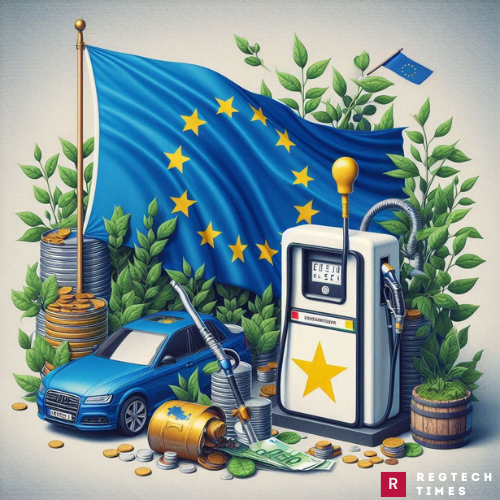The European Union (EU) is poised to impose provisional tariffs on biofuels imported from China, responding to findings that Chinese companies have been dumping these commodities in the European market at unfairly low prices. The European Commission, the EU’s executive arm, has proposed duties ranging from 12.8% to 36.4%, a measure aimed at safeguarding domestic producers from the damaging effects of such dumping practices. The proposed tariffs are expected to come into force in August, although the EU’s comprehensive anti-dumping investigation will continue until February 2025, when definitive measures could be enacted.
The Market Context for Biofuels
This development comes in the wake of a significant downturn in biofuel prices. The European benchmark price for biodiesel made from used cooking oil averaged $1,300 per metric ton for the first seven months of this year, a drop of nearly 40% compared to the same period in 2022. The surge in Chinese biofuel exports to the EU has worsened the price slump. Data from Global Trade Tracker reveals that in 2023, European imports of Chinese biofuels soared to approximately 1 million metric tons, up from around 550,000 metric tons the previous year.
The influx of cheaper Chinese biofuels has created substantial challenges for European producers. Major oil companies have had to reassess their biofuel strategies in response to the market disruption. BP, for instance, paused the development of two new biofuel projects last month, while Shell halted construction at a Dutch biofuel plant in July to ensure future competitiveness amidst the current market conditions.
The EU’s Response to Biofuel Dumping
The EU launched an anti-dumping probe last year following an official complaint from the European Biodiesel Board (EBB). The EBB accused Chinese companies of engaging in highly damaging, unfair trading practices that threatened the viability of the European biofuels industry. The EU’s investigation is part of a broader strategy to protect its markets from unfair competition and ensure a level playing field for domestic producers.
EU Imposes 38% Tariffs on Chinese EVs: Balancing Industry Protection and Global Trade
This is not the first time the EU has confronted issues related to biofuel imports. Earlier this year, the EU dropped a separate investigation into the circumvention of duties on Indonesian biodiesel through China after the EBB withdrew its complaint. Nonetheless, the current measures against Chinese biofuels emphasize the EU’s determination to address and rectify market imbalances caused by dumping practices.
China’s Finland Trade Collapse: The Devastating Impact of Russian Sanctions
Market Reactions and Uncertainties in the Biofuels Sector
The announcement of provisional tariffs has introduced a degree of uncertainty into the biofuels market. Sophie Barthel, head of European biofuel pricing at Argus, noted that the ongoing investigation has made market participants cautious, leading to a slowdown in both domestic and international biofuel trade. Barthel explained that most market participants refrain from taking on bigger positions due to uncertainty about the investigation’s outcome.
University-Intelligence Collaboration: EU’s Move to Revolutionize Security to Combat China Espionage
Until May, biofuel imports from China had amounted to around 434,000 metric tons, consistent with last year’s levels. However, trade activity has slowed as stakeholders await the final decision on the tariffs. The provisional measures are a critical step towards stabilizing the market, but their long-term impact will depend on the outcome of the EU’s extended probe.
Broader Trade Implications for Biofuels
The EU’s move to impose tariffs on Chinese biofuels is part of a series of trade disputes between Brussels and Beijing. This year, China has launched anti-dumping investigations into imports of EU pork and brandy. In a tit-for-tat move, the EU confirmed plans in July to impose additional tariffs on electric cars manufactured in China.
These trade tensions highlight the complexities of global trade relationships and the challenges of maintaining fair competition in a highly interconnected market. The EU’s actions reflect a broader commitment to defending its industries against unfair practices while navigating the intricate dynamics of international trade.


